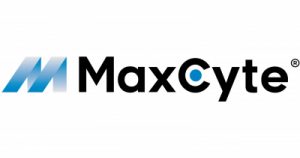
The Promise of Gene Therapy Offers More Hope for Rare Disease Cures in 2022
It is estimated that around 7,000 rare diseases exist, affecting 400 million people worldwide. Only about 5% have an FDA-approved drug to treat the condition, with many working to alleviate symptoms rather than targeting the cause of the disease itself. That is poised to change, though, as over the past few years gene engineering technology has made impressive strides toward addressing these diseases at their root cause.
While the field of gene therapy is still relatively new, it’s moving at a breakneck pace. In fact, 1,745 gene therapies are currently in development around the world! Technological advancements in gene editing, modulation, and replacement technologies have helped to advance this new breed of therapies, raising hope for cures for many of these rare diseases in the near future.
A major gene therapy milestone came in 2019 with the FDA approval of Avexis’ ZOLGENSMA®, which was developed from REGENXBIO’s NAV® Technology Platform. This approval became the first curative therapy for spinal muscular atrophy (SMA), a fatal childhood neuromuscular disease caused by a mutation in a single gene, SMN1. REGENXBIO is also in collaboration with Lysogene in conducting a Phase 3 study in Sanfilippo syndrome, a rare genetic metabolism disorder that causes brain damage and childhood dementia, and may publish study data later this year.
American Gene Technologies is a cell and gene therapy company based in Maryland that utilizes a proprietary lentiviral platform to develop potential treatments for liver cancer, Phenylketonuria (PKU), HIV, and inherited genetic disorders. AGT’s novel lentiviral platform has enabled the company to develop, test, and bank thousands of lentiviral vectors, which can then be matched to develop treatments for new target diseases, including orphan/rare diseases like PKU as well as diseases with larger patient populations.
This approach is unique in that it creates a truly scalable platform that can eventually be leveraged as a “toolbox” by any company that wants to solve a rare disease. AGT believes that its platform technology will eventually allow companies to lower drug development costs by as much as 90% and speed up development time by 80%, opening the market to treat even the rarest of diseases.
Philly-based Spark Therapeutics is also doing exciting work in the field, developing gene therapies for a multitude of diseases. The company received FDA approval in 2017 for LUXTURNA™, a one-time gene therapy to treat RPE65 mutation-associated retinal dystrophy, and has multiple other gene therapies currently in the clinic. SPK-9001 is currently in a Pfizer-led Phase 3 trial for hemophilia B, and SPK-8011 will likely soon be moving into Phase 3 for hemophilia A. Both hemophilia A and B are rare genetic conditions that can lead to an increased risk of bleeding and hemorrhage.
In December 2021 Spark announced the investment of $575M into a new state-of-the-art gene therapy innovation center on Drexel’s campus, affirming their commitment to supporting the growth of the gene therapy industry in the Philadelphia community.
Other gene therapies companies that are developing treatments for rare diseases include Passage Bio, bluebird bio, and Horizon Therapeutics, which recently acquired Maryland-based Viela Bio in 2021.
The gene therapy market is projected to grow at a compound annual rate of 16% between 2016 and 2024 and could reach $11 billion by 2024, according to an analysis from business intelligence provider GBI Research. 2022 in particular could see a wave of promising new gene therapies on the market, as many late-stage trials are currently underway.
Bluebird will be one of the gene therapy developers to keep an eye on, as Zynteglo for beta thalassemia, a disease that is relatively rare in the US but is one of the most common autosomal recessive disorders in the world, goes through the FDA review process. They are in a race against CRISPR Therapeutics and Vertex, which plan to submit CTX001 for FDA approval by the end of the year as well.
UniQure, and its global marketing partner CSL Behring, could seek approval in the U.S. and Europe for its hemophilia B treatment, AMT-061. Pfizer, Sarepta and Solid Bio are expected to report pivotal data this year for their three respective potential gene therapies for Duchenne muscular dystrophy. Another three companies, 4D Molecular Therapeutics, Sangamo and Freeline Therapeutics, all posted positive clinical data in the Fall of 2021 and are competing on gene therapies for Fabry disease.
With so many potential therapies advancing in clinical trials, and advancements in the science and technology that make them possible to develop and produce, there is great hope on the horizon for millions of patients around the world who desperately await the day when a single gene therapy treatment may cure their rare disease.
- About the Author
- Latest Posts
Over the past 11 years, Chris has grown BioBuzz into a respected brand that is recognized for its community building, networking events and news stories about the local biotech industry. In addition, he runs a Recruiting and Marketing Agency that helps companies attract top talent through a blended model that combines employer branding and marketing services together with a high powered recruiting solution.





